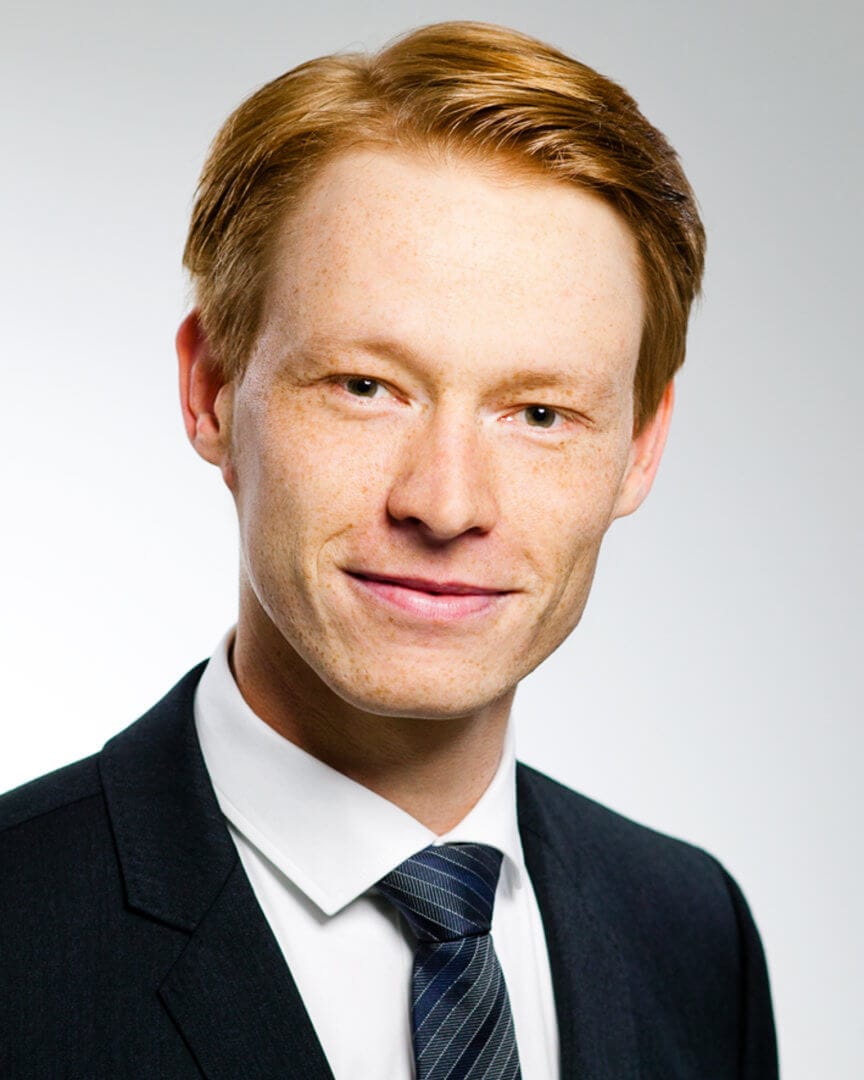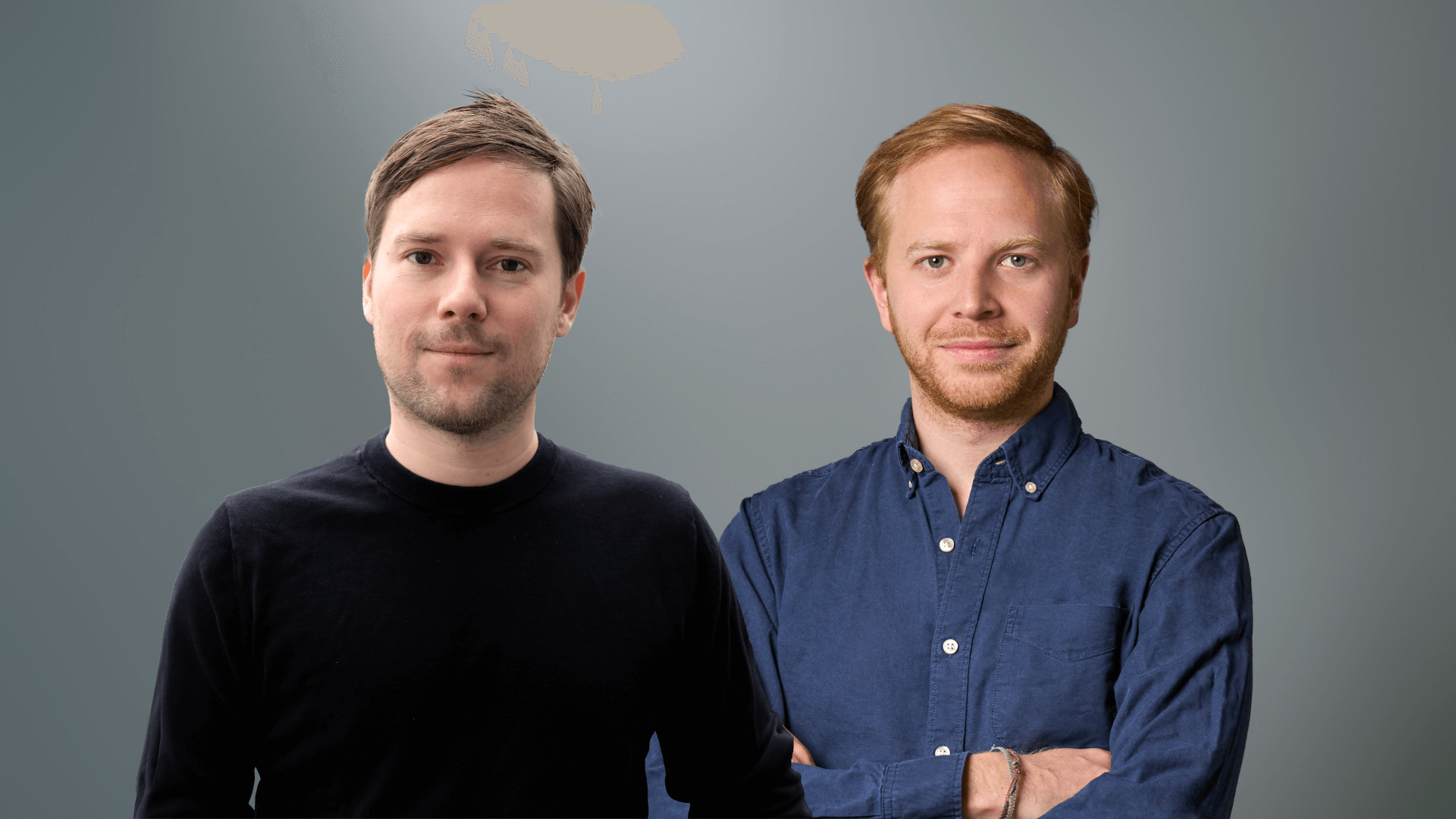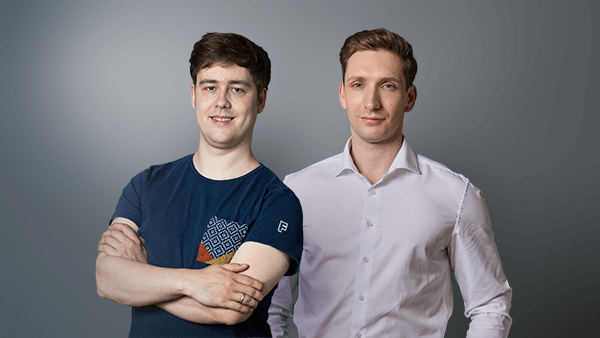Quantum technology at the High-Tech Partnering Conference: Experience new opportunities
Many experts believe that quantum technologies will take digitalisation to a whole new level. These technologies are set to unlock more powerful measurement tools than ever before, enhance communication security and support logistics processes – and solve previously unsolvable problems with the help of their vast computing power. But what is the technology already capable of? How can it be leveraged by industry? What are its initial applications? And where do start-ups, the research sector and companies currently stand in Germany? In this interview, we spoke to Johannes Verst, CEO of the Quantum Business Network (QBN), and Christian Ziach, Senior Investment Manager at High-Tech Gründerfonds, to find out.
You’ll both be participating in a deep dive panel discussion at the High-Tech Partnering Conference (HTPC) hosted by HTGF on 12 April, where you’ll be talking about the opportunities presented by quantum technologies and the impact they will have. Why is this such a relevant topic?
Johannes: Quantum technologies can be used in every major industry sector. Quantum computing, for example, can solve highly complex problems that would take today’s high-performance computers thousands of years. Classical computers and smartphones work on the basis of bits, which can have two possible states – either 0 or 1. Even though it’s hard to imagine, we will need to leave this binary mindset behind in the quantum world. Quantum computers work with qubits, which can have an unlimited number of states – including at the same time. Multiple qubits can also be entangled. I’ll give you a comparison: Doubling the performance of classical computers requires double the number of bits, while quantum computers just need one additional qubit.


Can you give an example?
Christian: One obstacle currently facing modern applications in the field of artificial intelligence is the lack of computing power to process data fast enough. Quantum computing will change that, catapulting products and innovations to a whole new level. This will enable ultra-complex calculations in engineering, finance and medtech. Another example I can give is molecular modelling in the pharmaceutical industry. Simulating molecular structures enables the composition of active ingredients to be calculated individually, which could help optimise interactions between individual active ingredients in cancer treatments. However, today’s quantum computers are still too prone to errors and do not yet have the requisite computing power. Meanwhile, applications in the chemicals industry have come a whole lot further. The simulation of simple molecules in their environments could surpass the possibilities of conventional computers in the foreseeable future – HQS Quantum Simulations, one of our portfolio companies, is working hard on this topic together with industry partners.
Are there any other possible applications aside from the calculation of complex computations?
Johannes: You bet! Take quantum sensors, for instance. Ultra-sensitive quantum sensors are set to be utilised in the fields of mobility, energy, geology and the IoT, as well as in healthcare. They can be used in brain-computer interfaces to detect and research diseases such as dementia, as well as to improve cancer screening and make autonomous cars safer.
Christian: They can also be used in the field of communication. Today, we live in a highly connected world, with various types of data – including sensitive information – needing to be shared in real time. Quantum communication systems will drive a step change in this respect thanks to their encryption and decryption technology.
Johannes, you’re CEO of the Quantum Business Network. Can you tell us what the network does?
Johannes: QBN’s goal is to build a quantum industry in Europe as part of a collaborative approach. Our members include established companies, start-ups, research institutes and universities along the entire value chain, as well as ministries and public bodies. We identify the latest trends and developments in R&D and business, work on joint execution, initiate collaborations and give this field as a whole more visibility. But we also provide our members with practical support, offering assistance with business development and helping to find investors, for instance.
Where do German companies stand?
Johannes: Large-scale companies do indeed have experts that are working on the topic, although the technology is still in its infancy. As a result, companies often don’t give the topic the attention that I feel it deserves. But I’m pleased to see that interest is growing, and we now have an increasing number of SMEs reaching out to us.
Christian: A lot of managers are still busy overseeing the fundamental digitalisation of their company. They are often completely unaware that quantum technologies will unlock entirely new possibilities that will also need to be addressed. Aside from learning about the topic, it’s also a question of having the necessary capacities and expertise within the company.
Christian, what is HTGF aiming to achieve with its investments in the field of quantum technology?
Christian: As a seed investor, we finance promising business models that shape the ecosystem. So this also extends to start-ups that provide infrastructure for quantum technology. I’m delighted that our portfolio company kiutra will be joining us at the HTPC. The start-up develops magnetic cooling systems that enable industrial quantum technology applications in the first place. I’ve already mentioned HQS Quantum Simulations, which will also be attending the HTPC. The start-up provides software that material scientists in the chemical sector and in the scientific community can utilise to simulate quantum systems. HQS is working on quantum-level models of materials and their molecular properties, and thus supports researchers. Quantum technologies are also giving rise to a whole new industry. In addition, established companies will also need to create innovative, superior products. In Germany and Europe alike, we urgently need to become competitive in this field and drive innovation. A quick glance towards China and the United States shows just how much research and work is being invested in this field.
What other insights can HTPC attendees expect to gain during your deep dive talk?
Johannes: We’ll showcase technologies and illustrate the possibilities they offer. Christian has already mentioned two start-ups that will take part in our quantum deep dive discussion. I’m also looking forward to being joined by Quantum Brilliance, which is also a QBN member. The company utilises nitrogen-vacancy centres in diamonds to build quantum computers. The systems can work at room temperature and can later be installed in autonomous vehicles, for instance.
Christian: The HTPC has always been a platform of knowledge for exploring high-tech solutions and innovations. The deep dive talk on quantum technology is a special offering within this platform. We want to make it an easily accessible topic for Germany’s medium-sized companies in particular, as well as for corporations, and to connect them with the relevant network partners. Attendees will gain a clear picture of this new field of technology, especially in terms of the current level of knowledge and potential applications in industry.


